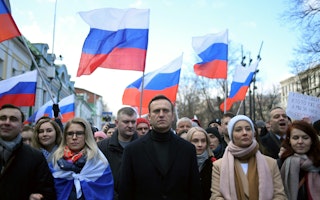Hockey Politics for Europe’s Last Dictator in Belarus
By Viorel Ursu & Joanna Hosa
Sports and politics make a heady mix. Genuine sports diplomacy has proven to be very effective. This is usually inter-state, highly symbolic and positively exploits the metaphor of rules-based international competition. However, when despotic regimes host major international events, they exploit international political attendance to confer legitimacy on themselves. This is not sports diplomacy but international public diplomacy at its worst, not just because of the latent hypocrisy in the show, but because the other side of the equation, the people that live under the regime, are kept out of the picture.
Ice hockey is highly political in Belarus. Its president, a renowned hockey player and self-confessed dictator, Alexander Lukashenka, is using hockey to play for legitimacy. Luckily for anyone interested in basic human rights in Belarus, those that live under his regime are making their voices heard. The campaign “Don’t Play with the Dictator” has the 2014 Ice Hockey World Championship in its sights.
For a country popularly known as home to “the last dictator of Europe,” there was surprisingly little outrage in 2009 when Belarus was awarded the right to organize the championship. Some saw it as a chance to open up Belarus and its economy. René Fasel, the President of the International Ice Hockey Federation (IIHF), was determined to focus on sport. He praised Belarus as a “hockey nation” and said he is always happy to go to Minsk.
Since 2009, the situation has gone from bad to worse in Belarus. On December 19, 2010, the presidential elections ended in violent clashes between police and protestors and the arrests of hundreds. A decisive clampdown on civil society and independent media followed. There are now 12 political prisoners in Belarus, including Ales Bialiatski, the Chairman of the Human Rights Centre Viasna.
According to human rights organizations united in the “Don’t Play with the Dictator” campaign, “Today Belarus finds itself in the most alarming human rights crisis since the country became an independent state in 1991.” Like the European Parliament and the Parliamentary Assembly of the Organisation for Security and Cooperation in Europe, they have called for a relocation of the championship. Despite these efforts, Fasel confirmed the decision to hold the games in Minsk. He fell back on the dogma that “sport cannot and should not be a political tool”, ignoring the reality that his sport is already highly politicised, and a tool for one of the most infamous regimes in Europe.
Lukashenka is using the championship to boost his image, both externally and internally. In May 2012 he assured his parliamentarians that Belarus is ready to host the games and welcome foreign fans. He added that foreigners believe lies on the Internet, but once they come and see Belarus for themselves, they will discover that it is a beautiful, modern country and that there are no “bears and no evil sabre-rattling dictator rambling in the streets of Minsk.” If no one acts, Lukashenka’s plan might just work. At first glance, the capital is a relatively harmless place. You are not confronted with evidence of human rights abuses when you step out of the airport, but they are readily to be found in prisons that are closed to international scrutiny.
Given that relocation is highly unlikely, is it best to boycott the games as “Don’t Play with the Dictator” is suggesting? A boycott by the teams or by foreign fans is unrealistic. A boycott by high-level officials, however, will isolate Lukashenka further and clash with his internal propaganda within Belarus. Some politicians, including Angela Merkel and José Manuel Barroso, stayed away from the EURO 2012 football games in Ukraine which embarrassed its host president who was keeping former Prime Minister Yulia Tymoshenko in prison despite medical problems. Boycotting the games in Belarus is arguably the only option for democratic leaders who are serious about human rights (and their jobs). Western business should also refrain from funding the games and having their names associated with the dictator.
One positive element to hosting the games in Belarus is the spotlight which will increasingly focus on human rights abuses by Lukashenka’s regime. The campaign surrounding Eurovision in Azerbaijan, another country run by a repressive, authoritarian regime, excused by many of gross abuses on account of its energy wealth, is a good example to follow. Earlier this year, civil society within Azerbaijan mobilized a campaign that succeeded in embarrassing the regime. A similar campaign in and outside Belarus can turn the Ice Hockey Championship into a public relations disaster rather than a triumph for Lukashenka. To make this happen, activists should redirect their efforts towards persuading Western politicians and businesses to boycott the event in Minsk, while communicating the stories of repression and abuse to incoming players, journalists and fans. This might hopefully lead Lukashenka to loosen his grip on dissidents and to free political prisoners. At the very least, the people who go to see Belarus for themselves should have a clear understanding of what is behind the regime’s facade.
In debating the boycott dilemma we shouldn’t forget just how and why Belarus was awarded the right to organize the championship in the first place. International sporting bodies need to consider their responsibility to more than sport when making these decisions. Despite Mr. Fasel’s claims of the opposite, sport is and always will be a political tool. We should make good use of this tool in trying to make Belarus a better place to live for all its citizens, including those who disagree with its government.

Viorel Ursu is director of advocacy and grant making for the Open Society Eurasia Program.
Joanna Hosa is a former policy intern with the Open Society European Policy Institute.


